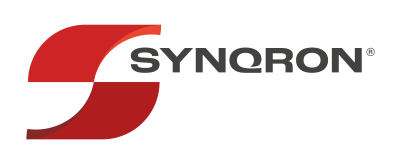Introduction
In the competitive Australian business environment, systematic quality assurance (QA) is not just a compliance requirement but a strategic imperative. It’s the backbone of customer satisfaction, operational excellence, and market reputation. As organisations strive for excellence, the role of structured QA processes becomes increasingly critical. Synqron, with its innovative solutions, is at the forefront of enhancing QA processes across industries. This blog explores the essence of systematic QA and how Synqron’s approach can bolster quality standards, drawing on scientific references for a comprehensive understanding.
The Core of Systematic Quality Assurance
Systematic QA refers to the structured processes and methodologies implemented to ensure products, services, and processes meet predefined quality standards. It encompasses various activities, including but not limited to, quality planning, quality control, quality improvement, and quality management systems (QMS) (Dale, 2015). In the Australian context, with its stringent regulatory standards and high consumer expectations, adopting a comprehensive QA approach is vital for businesses aiming to maintain competitiveness and compliance.
Key Components of Systematic QA
- Quality Planning: Establishing the standards and specifications that products and services must meet. It involves setting clear quality objectives and designing processes to achieve them.
- Quality Control: The operational techniques and activities used to fulfil quality requirements. It includes testing, measurement, and corrective action procedures.
- Quality Improvement: A continuous effort to enhance process efficiency and effectiveness, often involving the adoption of best practices and innovative technologies.
- Quality Management Systems (QMS): A framework that guides an organisation in achieving its quality objectives. It includes policies, processes, and procedures required for planning and execution in the core business area (ISO, 2015).
Synqron’s Role in Enhancing QA
Synqron offers advanced technological solutions and expert consultancy services designed to streamline QA processes. By integrating digital tools with quality management strategies, Synqron helps organisations:
- Automate routine QA tasks, reducing human error and increasing efficiency.
- Implement robust data analytics for insightful quality performance tracking.
- Foster a culture of continuous improvement, leveraging the latest industry best practices.
The Strategic Impact of Systematic QA
Systematic QA has a profound impact on business performance and customer satisfaction. It not only ensures compliance with regulatory standards but also builds customer trust and loyalty. Moreover, effective QA processes lead to operational efficiencies, cost savings, and enhanced product quality. Studies have shown that organisations with mature QA practices experience fewer defects, reduced waste, and improved market competitiveness (Juran & Godfrey, 1999).
Conclusion
In today’s fast-paced and quality-conscious market, systematic quality assurance is a cornerstone of business success. Australian businesses, in particular, stand to gain significantly from adopting structured QA processes, given the competitive and regulatory landscape. With the support of Synqron’s innovative solutions, organisations can elevate their QA practices, ensuring they not only meet but exceed the high standards expected by stakeholders.
References
- Dale, B.G. (2015). Managing Quality. 6th ed. Oxford: Wiley-Blackwell.
- ISO. (2015). ISO 9001:2015 – Quality management systems — Requirements. Geneva: International Organization for Standardization.
- Juran, J.M., & Godfrey, A.B. (1999). Juran’s Quality Handbook. 5th ed. New York: McGraw-Hill.





